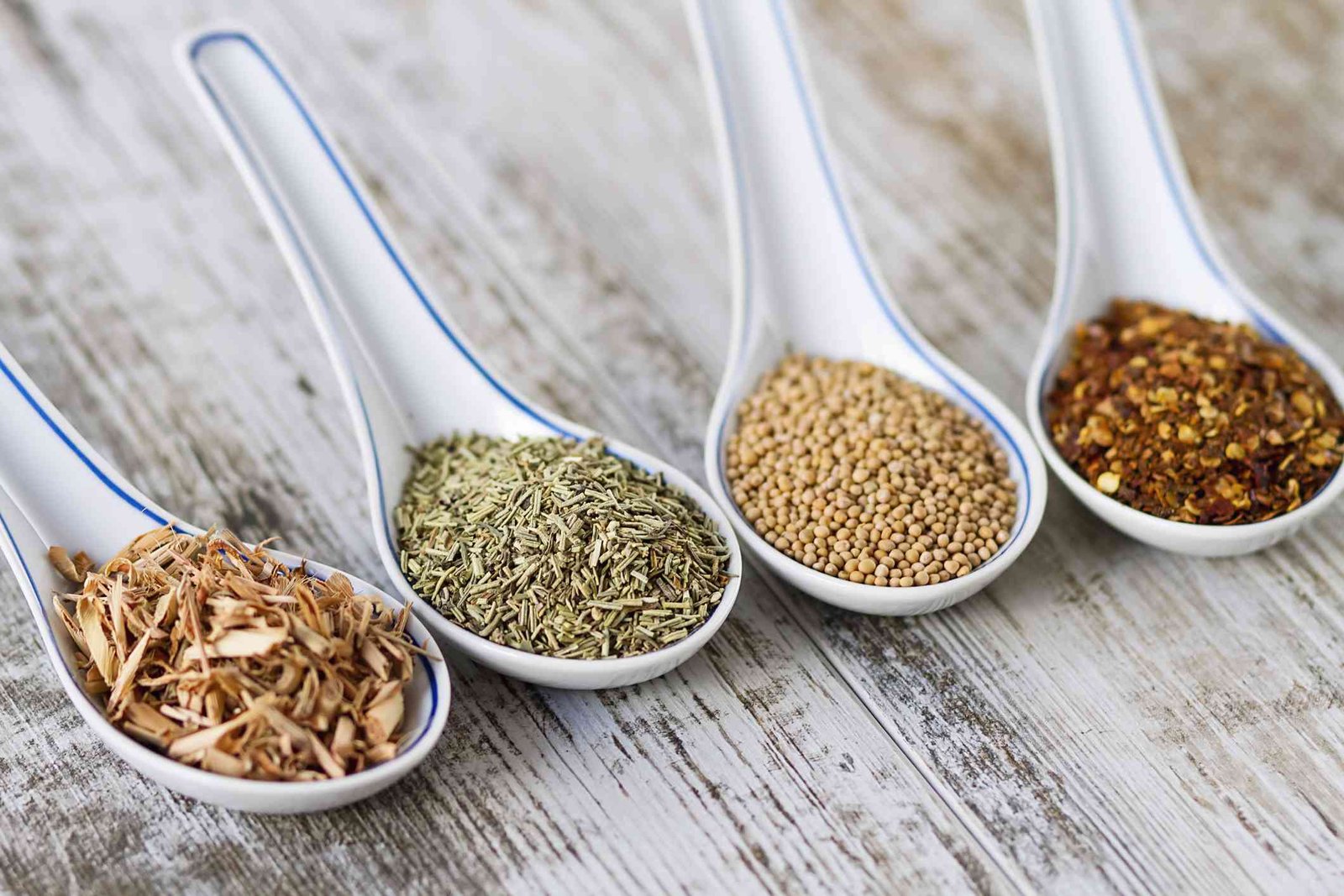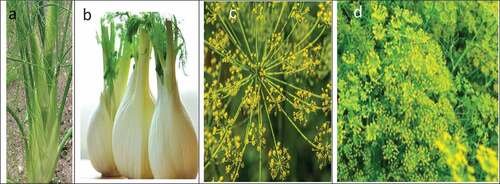Medicinal Plants for Digestive Wellness: Ginger, Fennel, and More
Digestive health is an essential aspect of overall well-being. A well-functioning digestive system ensures the proper absorption of nutrients, supports immune function, and contributes to a general sense of vitality. For centuries, traditional herbal remedies have been used to promote digestion, alleviate discomfort, and treat various gastrointestinal issues. Plants like ginger, fennel, and other medicinal herbs offer natural solutions for improving digestive wellness. In this article, we explore the healing properties of these plants and how they can be used to support digestive health.
1. Ginger: A Powerhouse for Digestion
Ginger (Zingiber officinale) is one of the most well-known medicinal plants used for digestive wellness. This aromatic root has a long history of use in traditional medicine across cultures, especially in Chinese and Ayurvedic practices, for its ability to ease digestive discomfort and support overall gut health.
Digestive Benefits of Ginger:
- Relieves Nausea: Ginger is widely recognized for its ability to relieve nausea, especially in cases of motion sickness or morning sickness during pregnancy. The active compounds in ginger, such as gingerol, help calm the stomach and reduce feelings of nausea.
- Boosts Digestion: Ginger stimulates the production of digestive enzymes, which can help break down food more efficiently. It also increases the motility of the gastrointestinal tract, helping food pass through the digestive system more smoothly.
- Reduces Bloating and Gas: Ginger has carminative properties, meaning it helps to expel gas from the digestive system, reducing bloating and discomfort. It can also help soothe inflammation in the intestines, providing relief from indigestion.
- Supports Gut Health: The anti-inflammatory properties of ginger help maintain a healthy digestive tract, reducing the risk of conditions such as irritable bowel syndrome (IBS) and other inflammatory digestive disorders.
2. Fennel: A Soothing Herb for Digestion
Fennel (Foeniculum vulgare) is another powerful medicinal plant commonly used to support digestive wellness. The seeds of the fennel plant have been used for centuries in herbal medicine, particularly in Mediterranean and Ayurvedic traditions, to treat digestive issues.
Digestive Benefits of Fennel:
- Relieves Gas and Bloating: Fennel seeds are known for their ability to relieve gas and bloating. Fennel’s carminative properties help expel trapped gas and ease discomfort in the stomach and intestines.
- Promotes Healthy Digestion: Fennel stimulates the production of bile, which aids in the breakdown and absorption of fats. By promoting bile secretion, fennel supports smoother digestion and nutrient absorption.
- Alleviates Indigestion: Fennel has antispasmodic properties that help relax the muscles of the gastrointestinal tract, reducing symptoms of indigestion, such as stomach cramps and discomfort. Fennel tea is often used after meals to prevent and relieve indigestion.
- Supports Detoxification: Fennel is considered a gentle detoxifier. It helps eliminate toxins from the body and reduces inflammation in the digestive tract, which may improve overall gut health and function.
Exploring Nature’s Pharmacy for Digestive Health
When it comes to soothing digestive discomfort, many turn to time-honored remedies like ginger and fennel. These medicinal plants have been celebrated for their ability to ease bloating, nausea, and indigestion naturally.
Incorporating these herbs into your daily routine can support overall wellness, much like finding reliable resources in other areas of life. For instance, when seeking entertainment, players often look for the best online casino payouts newzealandcasinos to ensure a rewarding experience.
Discover how these powerful plants can transform your digestive health in our latest feature on natural remedies.

3. Peppermint: A Cooling Remedy for Digestive Discomfort
Peppermint (Mentha piperita) is another popular herb that has long been used to treat digestive issues. The cooling, soothing properties of peppermint make it effective in calming the digestive system and relieving discomfort.
Digestive Benefits of Peppermint:
- Soothes Indigestion: Peppermint helps relax the muscles of the gastrointestinal tract, reducing the symptoms of indigestion, nausea, and bloating. It is especially useful for relieving gastric discomfort after meals.
- Relieves Irritable Bowel Syndrome (IBS): Peppermint oil is frequently used to alleviate symptoms of IBS, such as bloating, abdominal pain, and irregular bowel movements. It has antispasmodic properties that help relieve the muscle spasms often associated with IBS.
- Improves Gallbladder Function: Peppermint has been shown to stimulate the production of bile, promoting better digestion, especially of fatty foods.
- Eases Nausea and Vomiting: The menthol in peppermint has a calming effect on the stomach, making it an effective remedy for nausea and vomiting, particularly in cases of motion sickness or morning sickness.
4. Licorice Root: A Healing Herb for Gut Health
Licorice (Glycyrrhiza glabra) is a sweet herb with a long history of medicinal use. It has been used in Traditional Chinese Medicine (TCM) and Ayurveda for centuries to treat digestive disorders, soothe the stomach lining, and support overall gut health.
Digestive Benefits of Licorice Root:
- Soothes the Stomach Lining: Licorice root contains compounds that help protect the stomach lining from damage caused by acid reflux and ulcers. It promotes the production of mucus, which acts as a protective barrier for the stomach and intestines.
- Reduces Inflammation: Licorice has anti-inflammatory properties that help reduce inflammation in the gastrointestinal tract, which can improve conditions like gastritis and peptic ulcers.
- Supports Digestive Health: Licorice is believed to have a harmonizing effect on the digestive system, improving overall digestive health and function.
- Relieves Constipation: Licorice is sometimes used as a mild laxative to relieve constipation by stimulating the peristaltic movement of the intestines.
5. Aloe Vera: A Plant for Digestive Health
Aloe vera (Aloe barbadensis miller) is well-known for its skin-healing properties, but it also offers significant benefits for digestive health. Aloe vera juice is commonly consumed for its soothing and healing effects on the digestive system.
Digestive Benefits of Aloe Vera:
- Alleviates Heartburn: Aloe vera can help reduce the symptoms of acid reflux and heartburn by soothing the esophagus and reducing acid production in the stomach.
- Relieves Constipation: Aloe vera is known for its gentle laxative effect, which can help relieve constipation and promote regular bowel movements.
- Supports Healthy Gut Flora: Aloe vera contains prebiotics, which support the growth of healthy gut bacteria and contribute to overall gut health.
- Reduces Inflammation: Aloe vera helps to soothe inflammation in the intestines, which can be beneficial for conditions such as IBS and Crohn’s disease.
Conclusion
Medicinal plants like ginger, fennel, peppermint, licorice root, and aloe vera have long been used to promote digestive wellness and treat common gastrointestinal issues. These plants offer natural remedies that can help relieve discomfort, ease bloating, and support overall digestive health. Incorporating these herbs into your diet, either through teas, supplements, or as part of your meals, can help maintain a healthy digestive system and improve your quality of life. However, always consult a healthcare professional before using herbs for medicinal purposes, especially if you are dealing with chronic digestive issues.



